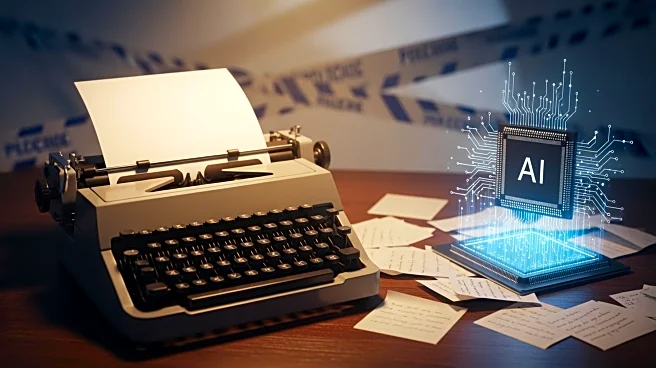What's Happening?
In a recent analysis, it has been observed that some of the most intelligent individuals, including CEOs and professors, are exhibiting denial about the capabilities and impact of artificial intelligence
(AI). Despite understanding AI's potential, these individuals often dismiss it as mere hype or a toy, citing instances where AI outputs are nonsensical. This resistance is not due to ignorance but rather a sophisticated form of denial rooted in identity threat. The fear is that AI could undermine human expertise and identity, turning unique human contributions into generic outputs. This phenomenon is described as 'motivated reasoning,' where individuals use their intelligence to protect their ego and worldview.
Why It's Important?
The denial among intellectual elites regarding AI's capabilities highlights a significant challenge in the integration of AI into various sectors. As AI continues to advance, it poses a threat to traditional roles and identities, particularly in creative and educational fields. This resistance could slow down the adoption of AI technologies, impacting industries that could benefit from AI-driven efficiencies and innovations. Understanding and addressing this denial is crucial for ensuring that AI is used effectively and responsibly, maintaining human oversight while leveraging AI's strengths.
What's Next?
To overcome this resistance, it is suggested that individuals learn to work with AI incrementally, redefining responsibilities and ensuring human oversight in AI outputs. By setting clear boundaries and policies, a sense of order can be restored, allowing for a more productive conversation about the role of technology in society. This approach could help recalibrate resistance, leading to a more balanced integration of AI into various sectors.
Beyond the Headlines
The deeper implications of this denial include ethical considerations about the role of AI in society and the preservation of human identity and expertise. As AI becomes more prevalent, it is essential to consider how it can complement rather than replace human contributions, ensuring that technology serves humanity's best interests.









